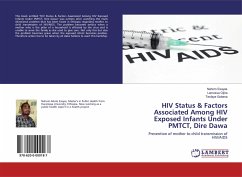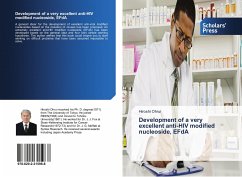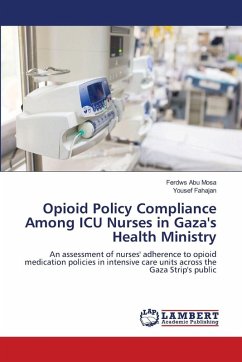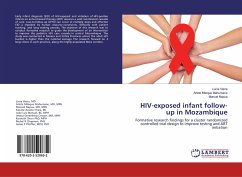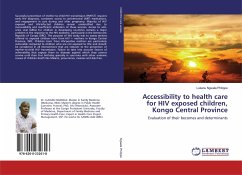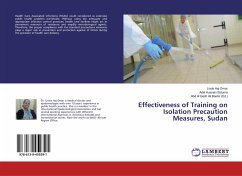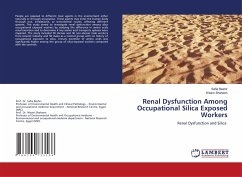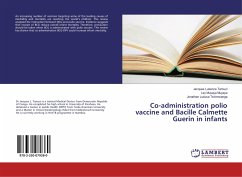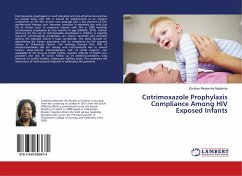
Cotrimoxazole Prophylaxis Compliance Among HIV Exposed Infants
Versandkostenfrei!
Versandfertig in 6-10 Tagen
27,99 €
inkl. MwSt.

PAYBACK Punkte
14 °P sammeln!
Cotrimoxazole prophylaxis is a well tolerated and cost-effective intervention for people living with HIV. It should be implemented as an integral component of the HIV chronic care package and a key element of pre-antiretroviral therapy care. However, provision is extremely low with just 8% of infants born to pregnant women with HIV in 2008 initiating cotrimoxazole prophylaxis by two months of age (UNAIDS, 2010). Greater advocacy for the use of cotrimoxazole prophylaxis in children is urgently required. Cotrimoxazole prophylaxis can reduce morbidity and mortality among HIV exposed infants if us...
Cotrimoxazole prophylaxis is a well tolerated and cost-effective intervention for people living with HIV. It should be implemented as an integral component of the HIV chronic care package and a key element of pre-antiretroviral therapy care. However, provision is extremely low with just 8% of infants born to pregnant women with HIV in 2008 initiating cotrimoxazole prophylaxis by two months of age (UNAIDS, 2010). Greater advocacy for the use of cotrimoxazole prophylaxis in children is urgently required. Cotrimoxazole prophylaxis can reduce morbidity and mortality among HIV exposed infants if used consistently. The study focused on determining the factors associated with its compliance by HIV exposed infants in Chikankata District. The findings showed that 78% of mothers/caretakers did not comply with cotrimoxazole due to several factors: socio-cultural, misconceptions, lack of social support, non availability of the drug at health facility, negative attitude of health care providers and lack of nurses follow up of mothers/caretakers, long distances to health facilities, inadequate staffing levels. This underpins the importance of multi-sectoral response in addressing the pandemic.



